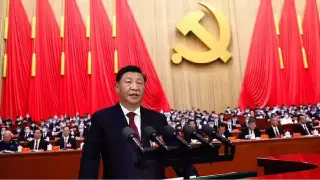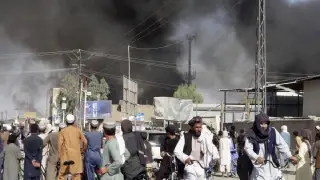
Khaleda Zia (X)
New Delhi: In a dramatic turn of events, former Bangladesh Prime Minister Khaleda Zia is set to be released from prison immediately. The order for her release was issued by Bangladeshi President Mohammed Shahabuddin on Monday, just hours after Sheikh Hasina resigned as Prime Minister and fled the country.
The decision to free Khaleda Zia comes shortly after Sheikh Hasina, who led the country for 15 years, stepped down amid escalating political unrest. According to an official press statement, President Shahabuddin made the decision after a meeting with members of the opposition party. The statement confirmed that the president "decided unanimously to free Bangladesh Nationalist Party (BNP) chairperson Begum Khaleda Zia immediately."
Press release from the Presidents office of Bangladesh reads,
"The meeting held unanimously decided to release @bdbnp78 Chairperson Begum Khaleda Zia. Additionally, it was decided to release all detainees who were arrested in various cases related to the student against… pic.twitter.com/CzyLpRx7l1— Sami (@ZulkarnainSaer) August 5, 2024
Khaleda Zia, the leader of the main opposition Bangladesh Nationalist Party (BNP), has been a rival to Sheikh Hasina's Awami League for decades. She is known for her strong opposition to Hasina, Zia's return to the political scene is expected to influence the country's political dynamics significantly.
Sheikh Hasina first became Prime Minister in 1996. Since then, she and Khaleda Zia have alternated in leading the country, with their fierce rivalry becoming a defining feature of Bangladeshi politics. While the Awami League promoted itself as a party of moderate and secular ideology, it often accused the BNP of supporting hard-line extremists.
Khaleda Zia, the former Prime Minister of Bangladesh, has faced numerous health issues in recent years, frequently traveling abroad for medical treatment. Her health problems have been a significant concern, especially during her time in prison.
In 2018, Zia was imprisoned following a corruption conviction, which she has consistently claimed was politically motivated. Her imprisonment came after a distinguished political career, during which she served as the Prime Minister of Bangladesh from 2001 to 2006.
After the end of her government’s term in 2006, Bangladesh was plunged into political turmoil. The January 2007 elections were postponed due to escalating political violence and infighting, which ultimately led to a military takeover of the caretaker government.
During its interim rule, the caretaker government charged Zia and her two sons with corruption. The allegations stemmed from her time in office, when, from 2001 to 2005, Bangladesh was ranked as the most corrupt country in the world according to the Corruption Perceptions Index.













Copyright © 2025 Top Indian News
